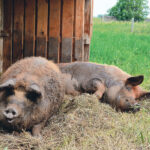Learning more about small-lot producers could make it easier to communicate with them about African swine fever
Whether pigs are kept as pets or for a personal pork supply, Canadians who keep a small number of pigs on their property are the target respondents for an online survey expected to be distributed later this month. The survey is part of a project to mitigate the risk of African swine fever in domestic […] Read moreStories by Barb Glen
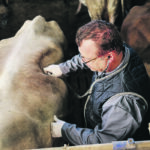
Vet checks go virtual
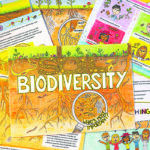
Federal soil researchers break into literary world
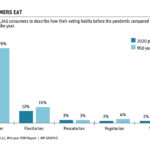
Flexitarians on the rise since COVID-19 struck
Most consumers continue to eat meat, but more of them are doing it less often as they focus on plant-based diets
The number of flexitarians, those who eat less meat than they used to and emphasize plant-based foods, has increased during the COVID-19 pandemic. In July, 16 percent of American consumers described themselves as flexitarian compared to 12 percent at the start of 2020. That’s an increase of 30 percent, as indicated in the Power of […] Read more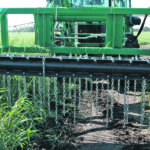
Fungicides, fertilizer did not aid hail recovery
Products applied in Alberta within three days of a simulated hail event had no consistent effect on wheat, peas or beans
Fungicides and nutrient blend applications did not improve the recovery of wheat, field pea or dry bean crops damaged by hail, according to one research study. Gurbir Dhillon, a researcher with the Farming Smarter applied research group, said various products applied within three days of a simulated hail event had no consistent effect on any […] Read more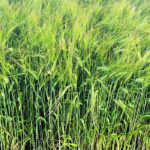
Timing important when rolling barley fields
One year of research data in Alberta finds that it is best to roll fields when the crop is at the one- to three-leaf stage
There’s nothing like putting a rock through the combine or silage chopper to ruin a farmer’s day and delay harvest. Rolling the field earlier in the season to push down rocks and soil clods reduces the risk of that event but timing is important, said Trevor Deering, research associate with Farming Smarter. The benefit of […] Read more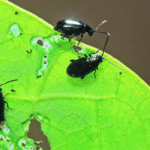
Insects were not a big deal in Alta. this year
Flea beetles were most significant problem in the province, and cabbage seedpod weevils also made themselves known
This year will be remembered for many things, but a plague of insects isn’t one of them. “It wasn’t an insect year,” entomologist and assistant University of Alberta professor Boyd Mori said about 2020’s insect pressures in Alberta. Flea beetle was the most troublesome pest. Both the striped and crucifer species were found in vast […] Read more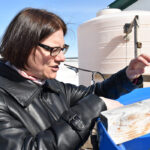
Late Agriculture Canada scientist honoured for soil conservation work
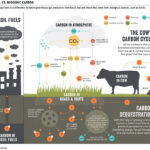
Livestock emissions downplayed
A researcher says methane produced by cattle is not the real problem — that would be emissions from burning fossil fuel
The accumulated methane belches from cattle are not the dire environmental problem that some factions make it out to be. In fact, says professor and air quality specialist Frank Mitloehner, “methane is not a super pollutant. Methane is a super opportunity.” That’s not to say that excess greenhouse gases, methane among them, are not a […] Read more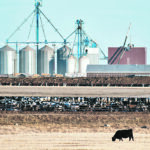
Education campaigns have drawbacks: prof
Engaging the public about animal agriculture’s vision is called a better option than abruptly pulling back the curtain
Engaging the public rather than trying to educate the public could be the best path to ensure continued trust in animal agriculture. Marina von Keyserlingk, a professor in animal welfare at the University of British Columbia, said she has given a lot of thought about the future of animal agriculture and the growing public disconnect. […] Read more

